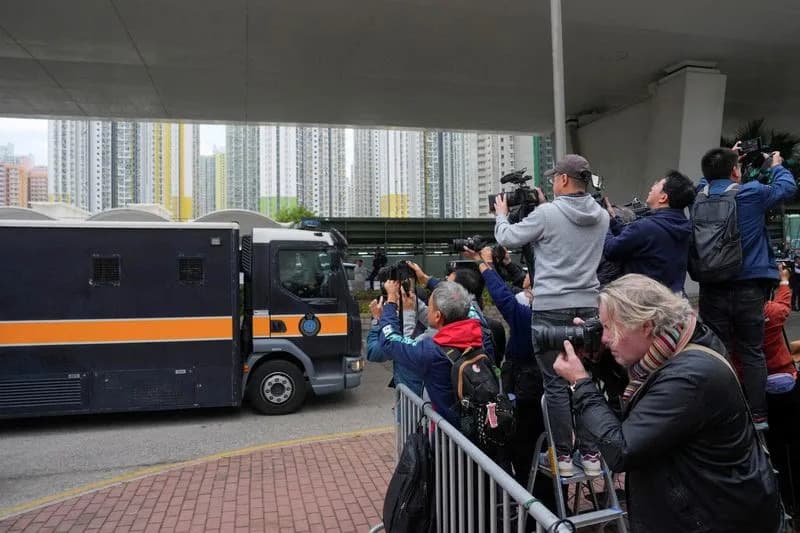Grace Jin Drexel, based in Washington, is urging Chinese authorities to review the detention of her father, Jin Mingri (Ezra), founder of the unregistered Zion Church in Beijing. Jin was detained on Oct. 10 along with more than 20 others on suspicion of the "illegal use of information networks." The family — who hold U.S. citizenship — worry about his serious Type 2 diabetes and say the detention center initially failed to provide medication. U.S. lawmakers, including Senator Marco Rubio, have criticized the detentions as part of a wider crackdown on independent religious groups.
Daughter of Detained Underground Pastor Urges China to Review His Case

Daughter Pleads for Release of Beijing Pastor Detained in Crackdown
When Grace Jin Drexel lost contact with her father in China several weeks ago, alarm quickly turned to fear. Jin Mingri — who also uses the name Ezra and founded the unregistered Zion Church in Beijing in 2007 — was among more than 20 people detained in what family members say was a nationwide sweep targeting the church's leaders and members.
Zion Church grew to about 1,500 congregants before authorities ordered it closed in 2018. The congregation continued an active online presence during the Covid-19 pandemic, attracting followers across roughly 40 Chinese cities.
Detention and Legal Status
According to the family, Jin was detained on Oct. 10 on suspicion of the "illegal use of information networks." Around the same time, police in Beijing and other cities detained several other pastors and church members. Family members say none of those detained have been allowed in-person visits from relatives.
"I was texting literally everyone in my contacts, like, 'what do I do?'" Jin Drexel recalled, describing her immediate panic when contact was lost.
Most of the arrested pastors have since secured legal representation, and Jin has met with his lawyers at least twice, the family says. Chinese authorities may hold a suspect for up to 37 days before deciding whether to file formal charges; that period is approaching for Jin, according to his daughter.
Health and Family Concerns
Jin Drexel and her brothers are U.S. citizens, and she now lives and works in Washington, where she has been campaigning for her father's release. The family is particularly worried about his health: he has serious Type 2 diabetes, and the detention center reportedly did not initially provide his medication.
Recounting a recent letter from her father, Jin Drexel said he remained hopeful and urged family members not to worry. "He was telling his family members to not worry about him and that he is feeling comforted to be able to suffer with Christ," she said.
Background and Wider Context
Jin founded Zion Church to create an independent place of worship outside Communist Party control. "It's not that we were against the government. We just wanted to have our own decision-making power for simple things like how many people can attend," Jin Drexel explained.
The church was closed and its assets frozen around September 2018 after leaders resisted installing facial-recognition cameras, the family says. After relocating abroad, the family says Jin returned to China to care for the congregation and has since been subject to a travel ban; he has not seen many family members, including two young sons, for years.
Under President Xi Jinping, Chinese authorities increased oversight of religious organizations and promoted the so-called "Sinicization" of religion. The government, officially atheist, has long been wary of organized movements beyond state supervision, leading to a split between state-approved churches and unofficial "house" or "underground" congregations.
International Reaction
U.S. lawmakers have taken notice. Republican Senator Marco Rubio criticized the detentions, and members of the Senate Foreign Relations Committee introduced a resolution condemning the Chinese Communist Party's actions in these cases.
Jin Drexel frames her father's detention as a religious freedom and basic human dignity issue. "It is about basic human dignity, and that the Chinese government wants to control everything about everyone, including what is so intimate — like your own beliefs," she said.
Current situation: The family continues to press Chinese authorities for review of the case, monitor the 37-day detention window, and advocate for proper medical care and access to their relative.
Help us improve.




























